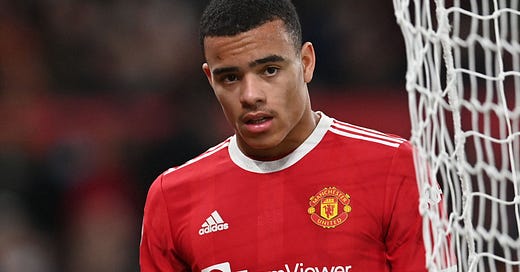Why Mason Greenwood’s return to Manchester United would silence victims of sexual violence.
As the club considers a phased reintroduction of the player, I ask fans what the forward's return would mean for them.
Warning: This article contains references to graphic sexual language and domestic abuse.
The future of Mason Greenwood’s career at Manchester United has been hanging over the club since his arrest in January last year, as a lifelong supporter of United and survivor of domestic abuse, new reports that the club are now considering his return have left many fans including myself deeply concerned.
The decision last month by the Crown Prosecution Service to discontinue their case against Greenwood, 21, for attempted rape, assault and “repeatedly engaging” in coercive and controlling behaviour has lead the club to conduct it’s own investigation of the player. A month on and club sources insist no decision has been taken yet, however reports in The Athletic say the club are actively weighing up an option of a ‘phased programme to reintroduce a footballer’.
It’s an option that will not only divide the fanbase, it’s left many now questioning their future support of the club.
The major problem t…
Keep reading with a 7-day free trial
Subscribe to David Challen to keep reading this post and get 7 days of free access to the full post archives.




